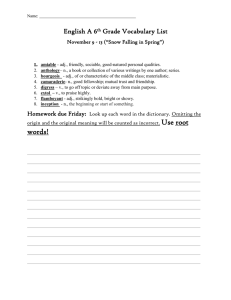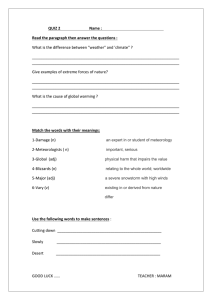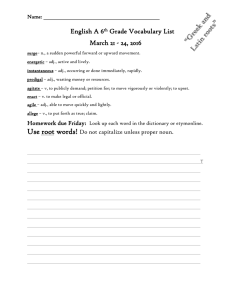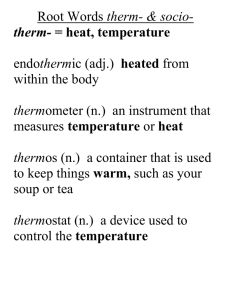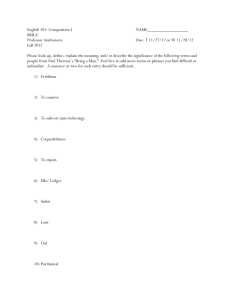Hamlet
advertisement
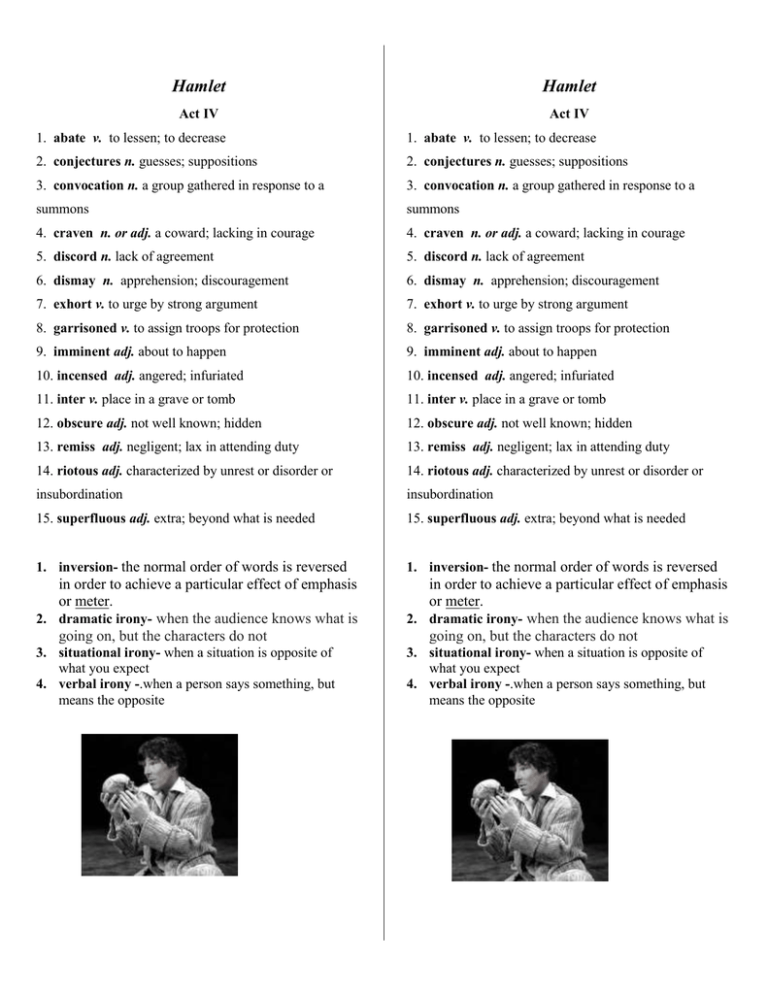
Hamlet Hamlet Act IV Act IV 1. abate v. to lessen; to decrease 1. abate v. to lessen; to decrease 2. conjectures n. guesses; suppositions 2. conjectures n. guesses; suppositions 3. convocation n. a group gathered in response to a 3. convocation n. a group gathered in response to a summons summons 4. craven n. or adj. a coward; lacking in courage 4. craven n. or adj. a coward; lacking in courage 5. discord n. lack of agreement 5. discord n. lack of agreement 6. dismay n. apprehension; discouragement 6. dismay n. apprehension; discouragement 7. exhort v. to urge by strong argument 7. exhort v. to urge by strong argument 8. garrisoned v. to assign troops for protection 8. garrisoned v. to assign troops for protection 9. imminent adj. about to happen 9. imminent adj. about to happen 10. incensed adj. angered; infuriated 10. incensed adj. angered; infuriated 11. inter v. place in a grave or tomb 11. inter v. place in a grave or tomb 12. obscure adj. not well known; hidden 12. obscure adj. not well known; hidden 13. remiss adj. negligent; lax in attending duty 13. remiss adj. negligent; lax in attending duty 14. riotous adj. characterized by unrest or disorder or 14. riotous adj. characterized by unrest or disorder or insubordination insubordination 15. superfluous adj. extra; beyond what is needed 15. superfluous adj. extra; beyond what is needed 1. inversion- the normal order of words is reversed 1. inversion- the normal order of words is reversed in order to achieve a particular effect of emphasis or meter. 2. dramatic irony- when the audience knows what is going on, but the characters do not in order to achieve a particular effect of emphasis or meter. 2. dramatic irony- when the audience knows what is going on, but the characters do not 3. situational irony- when a situation is opposite of what you expect 4. verbal irony -.when a person says something, but means the opposite 3. situational irony- when a situation is opposite of what you expect 4. verbal irony -.when a person says something, but means the opposite
